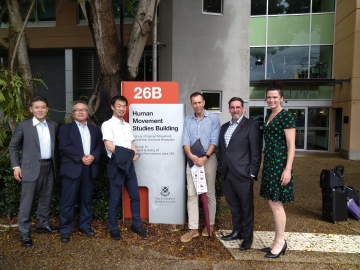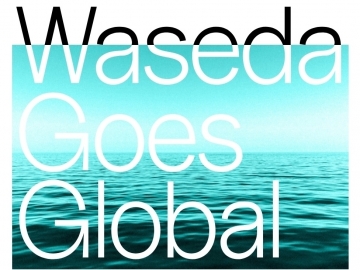We are pleased to announce that the Center for Positive/Empirical Analysis of Political Economy will be inviting Professor Luigi Curini (Università degli Studi di Milano) to give a special workshop and seminar on January 30 and 31, 2023.
Event Information
- Lecturer: Luigi Curini (Professor of Political Science, Università degli Studi di Milano)
- Language: English
- Open to members of Waseda University and the general public. Free admission.
- Registration: Not Required.
- Organizers: Airo Hino ([email protected])
- Sponsored by the Center for Positive/Empirical Analysis of Political Economy
1.Special Workshop
- Date & Time: Monday, January 30, 9:00-10:30/16:30−18:00
- Venue: Room 903, Bld. 3, Waseda Campus
- Title: A practical introduction to word embedding techniques – and why social scientists should be interested in them
Abstract:
This seminar is divided in two parts. In the first one (held in 9:00-10:30 entitled “(Theory): Moving beyond the bag-of-words approach: Word Embeddings”), I will give an introduction to word embedding (WE) techniques, focusing in particular on GloVe (Global VEctors of words). The aim is a) to present the main ratio behind word embedding models; b) to explain why social scientists should care about them (as a method on their own for analyzing text as data – for example for studying word usage, meaning, stereotypes, but also as useful complements to other algorithms, such as machine learning algorithms, dictionaries, and so forth); and c) to give some advices to practitioners. The second part of the seminar (16:30-18:00 entitled “(Lab): How to implement Word Embeddings”) will offer a hands-on lab on how to fit a GloVe in R. A general knowledge of R (in particular of the Quanteda package) would be useful, as well as a general familiarity with machine learning algorithms.
2.Seminar
- Date & Time: Tuesday, January 31, 16:30−18:00
- Venue: Room 704, Bld. 3, Waseda Campus
- Title: Covid Policy Diffusion among OECD Countries: when it happened, and when it did not
Abstract:
To address the Covid pandemic, a set of unprecedented Non-Pharmaceutical Interventions were implemented across the world. We document patterns of policy diffusion across OECD countries in the period January 2020 to March 2022. By performing a diffusion analysis with spatially-weighted lags, we find evidence of a discernible association between policies adopted across OECD countries according in particular to their geographical proximity. Interestingly, we find that policy diffusion effects are stronger when other countries are, on average, increasing the stringency of the restrictions they adopt. Conversely, no statistically significant policy diffusion can be detected when other countries are relaxing their restriction. We suggest that this asymmetry, leading to biased diffusion, reflects political incentives linked, among other things, to the variance of the quality of governance across countries. We finally consider the implications of our findings.








